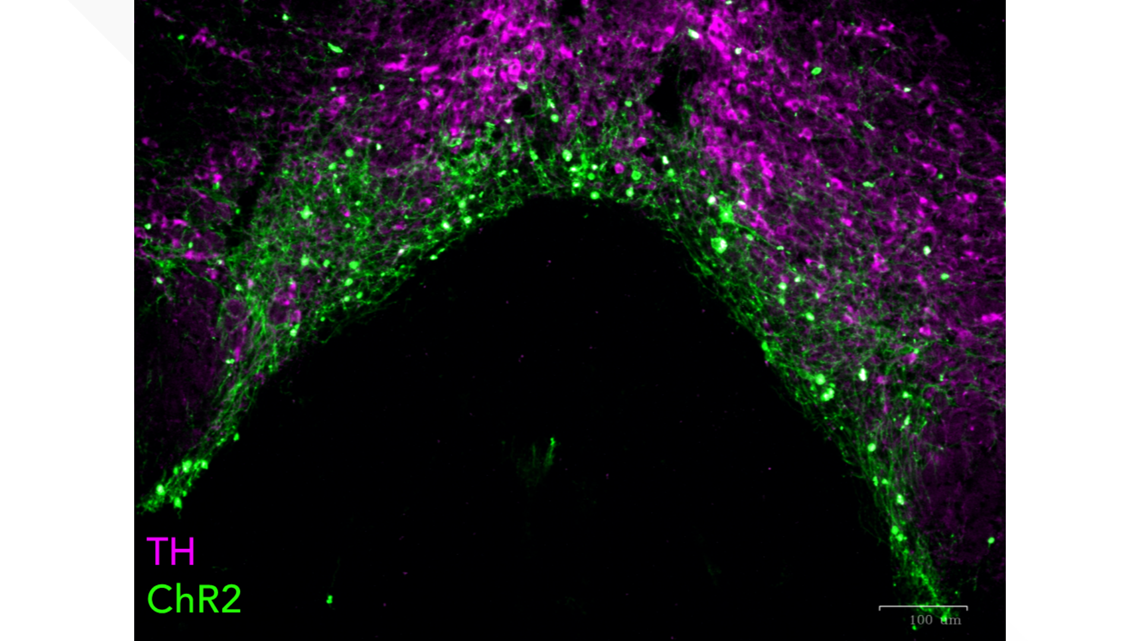SEATTLE — Science now has a name for the reason behind giving up, and they're known as "frustration cells."
Dr. Michael Bruchas of the UW Center for Neurobiology of Addiction, Pain, and Emotion is a part of the team researching this new cell.
The cell, known as nociceptin, is a complex molecule that suppresses dopamine, a chemical largely associated with motivation.
Researchers at the UW School of Medicine, Washington University School of Medicine, and colleagues at other universities, have spent four years researching the role of nociceptin in regulating motivation.
Bruchas sat down to talk about the new discovery and how it could help those with depression or addictions.
When it comes to motivation, there are two forces at work: nociceptors and dopamine.
In the image of cells provided by Bruchas, the lab tagged the nociceptors with a jellyfish protein to make them appear green. The dopamine cells, known as the happy, pleasure, and reward chemicals, are colored purple.
"They're [the nociceptors] regulating the activity of the dopamine cells and modulating them," said Bruchas. "So they're tuning the activity of the reward cells, and those cells control your motivational state."


After finding the neuromodulaters, the lab was able to manipulate them and determine how they function.
The green cells communicate with the purple cells in a reciprocal way and lets them know when to calm down.
"You haven't received your reward or nothing's happening, let's tone down and let's reduce your motivation," said Bruchas. "It's time to stop your effort that you're going through."
That's the point where we quit.
The long term goal of the study is to be able to control the nociceptor and dopamine communication by blocking or engaging activity of the cells. Tuning the activity of these cells and what they release can be important in both situations.
Blocking the activity of the cells can help someone who is depressed have more motivation. Engaging the activity of the cells more can help someone be less likely to abuse drugs.
The cells release a chemical that bind to a receptor, much like how a key fits in a lock. If a chemical is designed that can block or activate the receptor, mimicking the way the cells naturally work, the cells could be controlled and the person's effort in a situation can be impacted.
Some clinical trials are already underway for drugs that can regulate frustration cells.
Watch New Day Northwest 11 AM weekdays on KING 5, and streaming live on KING5.com. Connect with New Day via Facebook, Twitter, Instagram.

